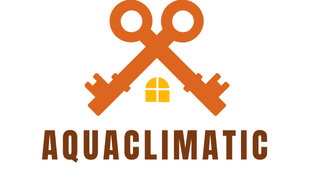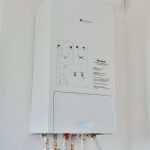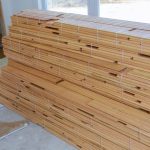When it comes to owning a second home in Wales, understanding the tax implications is critical. It’s necessary to navigate the complex system of council tax, stamp duty, and potentially even a premium on empty homes. In this article, we’re going to explore these issues in depth, focusing on whether any tax deductions might be available to you, the homeowner.
Understanding Council Tax on Second Homes in Wales
Council tax is something that anyone owning property in the UK has to deal with, including those who own a second home. But, the council tax you’ll pay for your second property in Wales can be different from your primary residence.
Avez-vous vu cela : How to negotiate lease extensions for flats in Cardiff?
In Wales, all homes are placed in a council tax band based on their valuation. The local council decides how much tax to charge for each band. However, if a property is not your main residence, it could be subject to a premium of up to 100%. This means you might end up paying double the standard council tax.
However, local councils have the discretion to charge less, and some even offer discounts. For example, if a home is substantially unfurnished and unoccupied for over six months, it could qualify for a 50% discount.
A découvrir également : How can you accurately estimate renovation costs for a Victorian house in London?
Although council tax itself is not deductible, the cost of improvements made to the property could potentially reduce your tax burden. If these improvements lead to an increase in the property’s value and subsequently its council tax band, you may be able to appeal the decision based on the costs you incurred.
The Stamp Duty Land Tax when Buying a Second Property
Stamp duty, formally known as Stamp Duty Land Tax (SDLT), must be paid when you purchase a property in Wales costing more than the set threshold. For second homes, there’s an additional 3% on top of the standard rates.
However, there are instances when you may be able to claim a refund on the extra 3% stamp duty. For example, if you purchase a new main residence before selling your previous one, you’ll initially have to pay the higher rates. But, if you sell your previous main residence within three years of buying the new one, you can claim a refund.
When it comes to tax deductions, you cannot claim the cost of stamp duty. However, if you’re a landlord and your second home is a rental property, you can offset the stamp duty against your capital gains tax bill when you sell the property.
Premium Charges on Empty Homes in Wales
In an attempt to reduce the number of empty homes in Wales, the Welsh government allows local councils to charge a premium of up to 100% on homes that have been empty for a significant period.
If your second property is unoccupied for a substantial part of the year, you may have to pay this premium. However, you can potentially avoid this charge if you can prove that the property is a holiday home and it’s available for short-term let for at least 140 days in the year.
You can’t claim a tax deduction for the premium charge. However, if you spend money to refurbish an empty property to make it habitable, you may reduce your income tax if it’s a rental property.
Mortgage Interest Deduction on Second Homes
If your second property is a rental, you can deduct the mortgage interest from your rental income. This is a significant tax relief that can considerably reduce the amount of income tax you pay.
For second homes that aren’t rented out, the situation is different. You can’t deduct the mortgage interest from your personal tax. However, if you decide to rent out your property in the future, the interest on the mortgage will become a deductible expense.
Capital Gains Tax on Selling a Second Home
When you sell a second property, you may face a capital gains tax (CGT) bill. However, if your second property has been your main residence at any point, you may qualify for Private Residence Relief, which can help reduce your CGT.
The key to this relief is the length of time the property has been your main residence. The final period of ownership, up to 9 months, always qualifies for relief, even if you weren’t living there at the time.
While the CGT itself isn’t deductible, you can offset the cost of improvements made to the property and any losses from previous years against the gain.
In conclusion, while there are few direct tax deductions available for second homeowners in Wales, there are ways in which you can effectively reduce your tax bill. The most significant of these is likely to be the ability to offset mortgage interest and improvements costs against rental income or capital gains tax. However, always remember to seek professional advice as tax rules can be complex and change frequently.
Business Rates on Second Homes Used for Business
For homeowners who use their second property in Wales for business purposes, there are additional tax implications to consider. Business rates are a system of taxation applied in the UK to non-domestic properties, including business premises and rental properties. If you’re using your second property for business, you may be liable to pay these.
The amount of business rates you pay is determined by the ‘rateable value’ of your property, which is its estimated value on the open market. The local council then multiplies this value by a rate set by the government to calculate your business rates bill.
While you can’t deduct business rates from your income tax, they are considered a business expense. This means you can offset them against your business income, which can lower your overall tax liability. If the property is both your business premises and personal residence, you may be able to claim a percentage of the business rates as a business expense.
In addition, if your property is deemed a ‘small business’, you may be eligible for Small Business Rate Relief. This can reduce your business rate bill by up to 100%, depending on the property’s rateable value and your situation.
So, while the business rates themselves are not a tax deduction, they can be offset against your business income, potentially reducing your overall tax burden.
The Impact of Local Authorities on Tax and Second Homes
Local authorities in Wales play a pivotal role in determining the various taxes that homeowners of second properties have to pay. From council tax to the premium on long-term empty properties, it is the local authorities who set the rates and rules.
Local authorities can decide to charge a premium of up to 100% on long-term empty properties to encourage property use and reduce the number of empty homes. If your second home falls into this category, you could face higher costs.
Furthermore, local authorities have the power to grant certain reliefs and reductions. For example, some may offer a reduced council tax rate for properties that are substantially unfurnished and unoccupied for over six months.
In terms of tax deductions, the role of local authorities is limited. However, their decisions can significantly impact your tax liability, and understanding their powers and policies can help you navigate the tax implications of owning a second home in Wales.
Conclusion
Owning a second home in Wales can come with significant tax implications, from council tax to stamp duty, and business rates. Understanding these liabilities, and the rules and reliefs that may apply, can help homeowners navigate this complex landscape.
While there are few direct tax deductions available, there are ways to offset costs and potentially lower your overall tax burden. Whether it’s through offsetting mortgage interest and improvement costs against rental income or capital gains tax, or taking advantage of small business rate relief, it pays to be well-informed.
However, given the complexity of the rules and the significant role local authorities play, it’s always advisable to seek professional advice. Tax rules can change frequently and can vary depending on individual circumstances. So, ensure your decisions are well-informed and consult with a tax professional when necessary. Remember, planning and knowledge can go a long way in ensuring that owning a second home in Wales is a financially viable venture.











